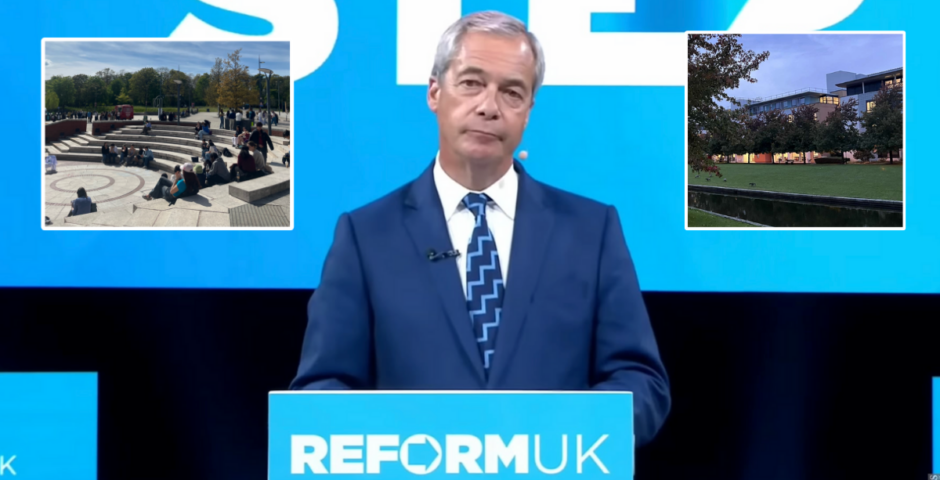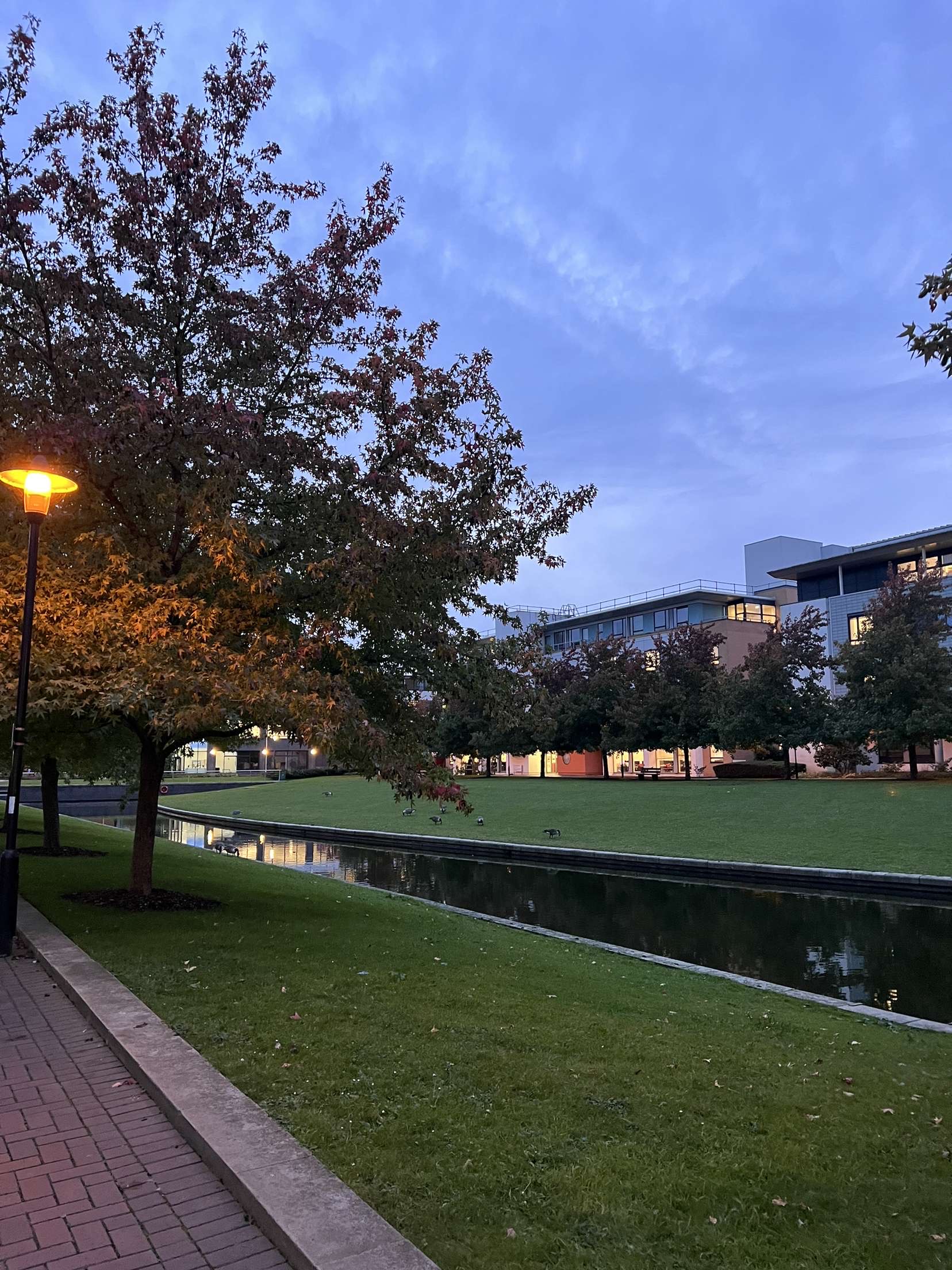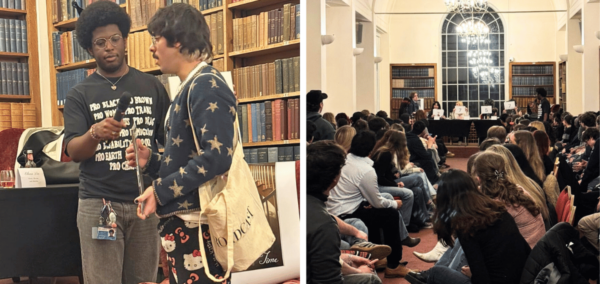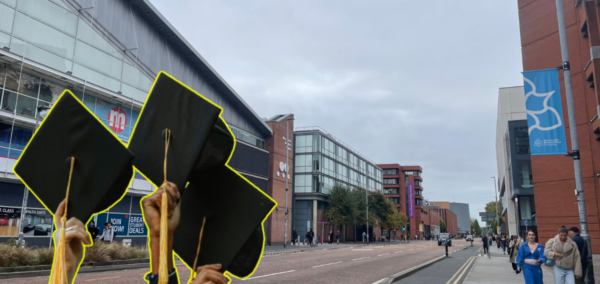
‘A lazy dismissal’: Warwick students react to Reform UK’s stance on higher education
Nigel Farage believes higher education is ‘poisoning’ young minds
Warwick students have reacted to what appears to be Nigel Farage’s most direct attack on higher education yet, as the Reform UK leader accused British universities of “poisoning young minds”.
Nigel accused institutions of offering students a “twisted interpretation of history” during his opening address to the Reform UK conference earlier this month.
This sentiment was echoed by delegates throughout Reform’s annual gathering, where speakers and activists framed higher education as elitist and politically biased. The party’s preference for vocational and technical training was also made clear by delegates speaking to Times Higher Education (THE).
The sharpest anger focused on what Reform figures branded the “communist” slant of the education system. George Finch, the 19-year-old leader of Warwickshire County Council, told THE that universities are “a conveyor belt of communism” and a “complete joke.”
Nigel has headed the right-wing party since June 2024, yet aside from his claims at the conference, Reform UK has no education spokesperson, and higher education received little direct attention.
What Warwick students have to say
 The Warwick Tab spoke to students about Reform’s claims, with one rejecting the argument entirely. They said: “University has helped me develop and get varied perspectives on life and the nuances of different social backgrounds, all while allowing me to study something I genuinely enjoy. To call it a conveyor belt of communism is ridiculous.”
The Warwick Tab spoke to students about Reform’s claims, with one rejecting the argument entirely. They said: “University has helped me develop and get varied perspectives on life and the nuances of different social backgrounds, all while allowing me to study something I genuinely enjoy. To call it a conveyor belt of communism is ridiculous.”
Another Warwick student offered a different take. “They don’t necessarily push liberal agendas, but do naturally push for progression at all costs which is fine, but often the ‘progression’ is wild and wrong.”
“Where else would you find people handing out literal communist manifestos?” they added.
Universities have become a free speech battleground

If technical training and debt-free alternatives to degrees are one strand of Reform’s education message, the other is free speech.
Nigel warned that elites would “do everything they can to crush free speech.” THE reported that British politician Andrea Jenkyns urged Britain to leave the European Convention on Human Rights, framing this as the first step towards restoring open debate on campuses.
But Warwick students are sceptical. One maths and physics student said: “This is a naive take – Farage never went to uni, and if he has been to one recently it’s clear he doesn’t understand the complexities of university life.”
Claire Fox, director of the Academy of Ideas and a member of the House of Lords, said to THE that students were “walking on eggshells” around critical race theory and diversity initiatives.
However, a Warwick politics student pushed back on the sentiment: “If anything, universities have encouraged discussion. I’ve been exposed to more viewpoints and debates here than anywhere else”.
‘People with a degree don’t support Reform’
Polling shows Reform enjoys much stronger support in areas with lower rates of degree attainment. Analysis by More in Common found the party thriving in constituencies where fewer voters went to university, raising questions about whether it needs significant graduate backing at all.
Anand Menon, professor of European politics at King’s College London, noted: “What we often forget when we go on about 50 per cent of kids going to university is that the flip side of that is that 50 per cent of kids don’t – and, at the moment, you can win an election with 26 to 27 per cent of the vote.”
That calculation means universities may be soft political targets. “My fear is that because of the way the electorate splits – which basically means that people with a degree don’t support Reform – universities start to look like soft targets for [Reform] in the same way that they do for Trump,” Anand told THE.
For some Warwick students, Nigel’s hostility towards higher education isn’t just a political strategy. Instead, they believe it’s a deeper attack on learning itself. Several described his remarks as “hateful rhetoric”, with one arguing he’s an “anti-intellectual”.
Another student alleged the Reform UK leader wants to replace education with his own fascist agenda.
‘This is just a lazy dismissal of universities’

The harshest rhetoric towards universities was reserved for what Reform figures describe as “woke ideology”. FE Week reported that Reform’s head of policy, Zia Yusuf, said the party had to stop schools and universities from becoming “indoctrination camps”.
However, not all Warwick students agree. One English student said: “This is just a lazy dismissal of universities. My degree has challenged me to think critically, question my own assumptions, and listen to people from completely different backgrounds.
“That’s the opposite of indoctrination.”
International students as the ‘lifeblood’ of the sector
A similar ambivalence was evident on the subject of international students. THE reported that Claire Fox also criticised universities for allegedly “placing more importance on the tuition fees of international students than on the quality of education”.
THE reported that others, such as Reform councillor Chris McGiffen, described overseas students as the “lifeblood” of the sector. Andrea also acknowledged their contribution. But even without formal visa restrictions, analysts suggested the anti-immigration mood around Reform could deter applications, particularly from India and Nigeria.
In contrast, former London School of Economics lecturer, David Starkey welcomed the prospect of closures. “Let it take its course. There’s nothing as good as bankruptcy,” he said.
With Electoral Calculus now giving Reform a near 50 per cent chance of winning a majority at the next election, universities may soon have little choice but to engage with the party.
Menon advised the sector to understand Reform’s objectives, and establish channels of dialogue before the next election to avoid becoming a political scapegoat.
Reform UK, Nigel Farage, and the University of Warwick have not yet responded to requests for comment.
Universities UK declined a request for comment.
Featured image via Youtube


















